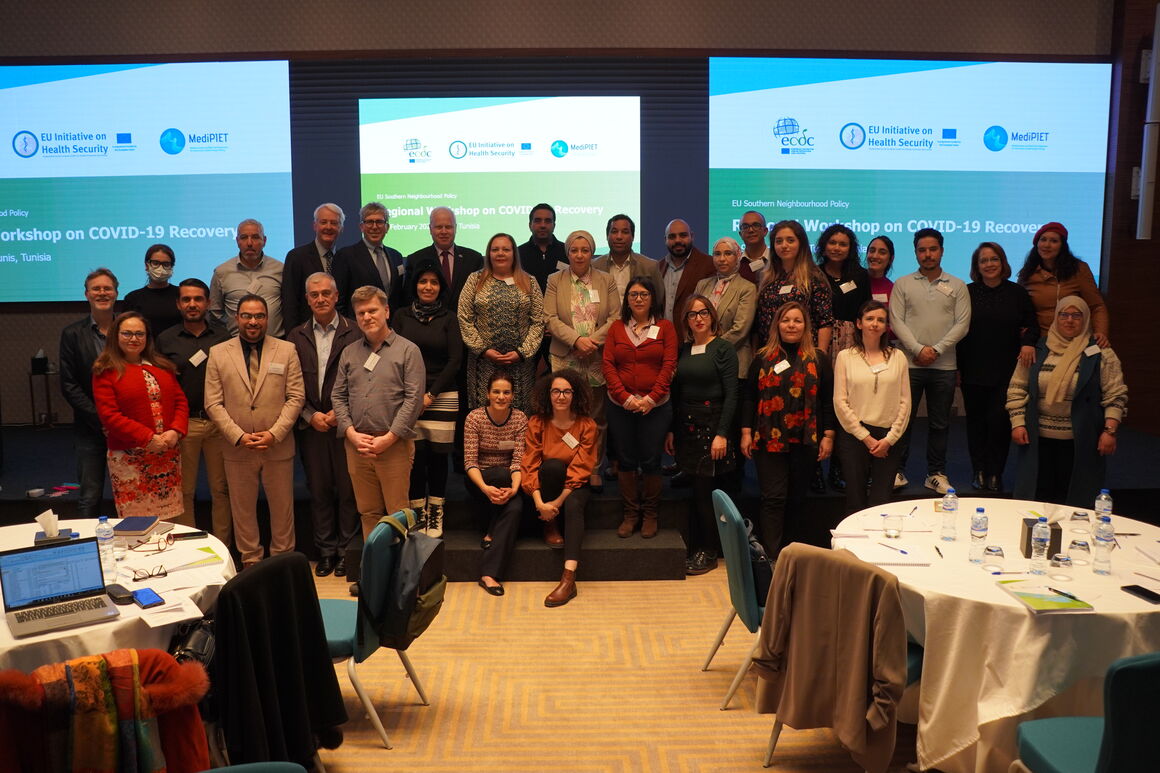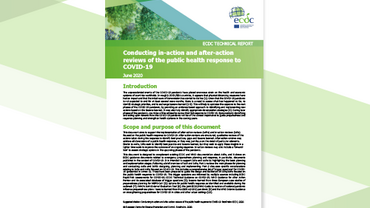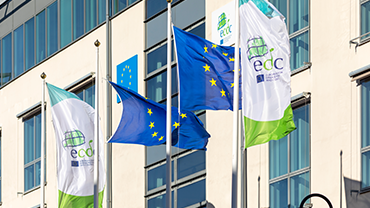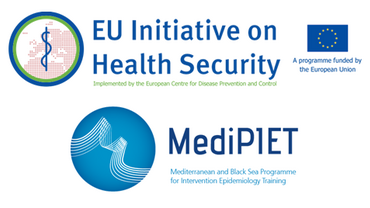Regional workshop on COVID-19 recovery in Tunisia
The workshop organised by ECDC took place from 7 - 9 March in Tunis, upon invitation of the Tunisian National Observatory of New and Emerging Diseases (NONED).

It gathered 25 professionals working for institutes of public health or ministries of health of Tunisia, Morocco, Egypt and Libya who were involved in the response to the COVID-19 pandemic. One representative of Africa CDC also attended the workshop. The workshop aimed to reflect on the lessons from Covid-19 and consider how they may be captured in action plans for subsequent implementation.
The workshop was facilitated by five experts from the ECDC Emergency Preparedness and Response Section, supported by an ECDC event assistant and assisted by one invited expert and by the Director Gneral of the National Observatory of New and Emerging Diseases (NONED).
The events of the COVID-19 pandemic placed an enormous strain on public health sectors throughout Europe and other regions. Several partner countries of the Southern Neighbourhood conducted after-action reviews (AAR) and in-action reviews (IAR) during and after the pandemic to evaluate their practices and adapt them as needed. Such appraisals allow for identifying recommendations for improving public health emergency plans.
The workshop provided participants with the knowledge, skills and support to develop best practice plans on health security, based on the outcomes of AARs and IARs.
The specific objectives of the workshop were to:
- Review the process of conducting IARs and AARs based on country experiences
- Share examples from countries' own experiences of good practice in identifying and implementing lessons learnt to improve preparedness steps.
- Consider and practice the steps necessary to take lessons identified and embed them into future plans (lessons learnt)
- Explore the current practice of developing national action plans on health security
After-action and in-action reviews
After-action reviews are structured, qualitative reviews of the actions taken during a response to a public health event to identify best practices, gaps and lessons learned.
Similar to after-action reviews, in-action reviews seek to identify best practices and lessons learned, but they seek to apply these insights in a tighter timescale to improve the outcome of an ongoing response.
| After-action reviews | In-action reviews | |
|---|---|---|
| Objective |
Seeks to address in detail:
|
Seeks to address in detail:
|
| Scope | Can address all aspects of emergency response, or can focus on specific areas | Best suited to focus on 1−2 specific response areas |
Background
International collaboration and networking with national and international public health authorities across EU/EEA neighbouring regions, and globally, strengthen preparedness and response activities and provides a unique opportunity to act effectively on potential cross-border threats. Under the EU Initiative on Health Security (EU-IHS), ECDC supports capacity building in the EU`s Neighbourhood regions.






